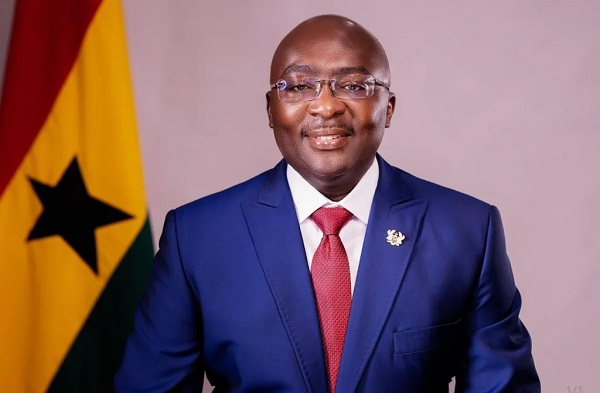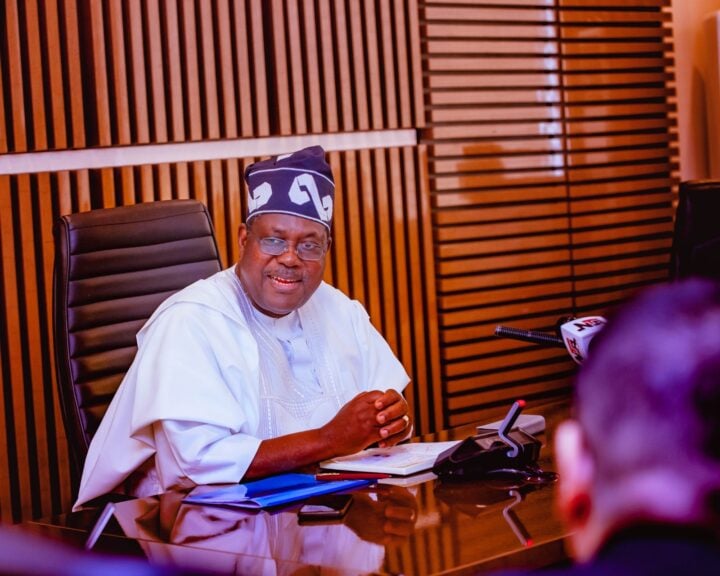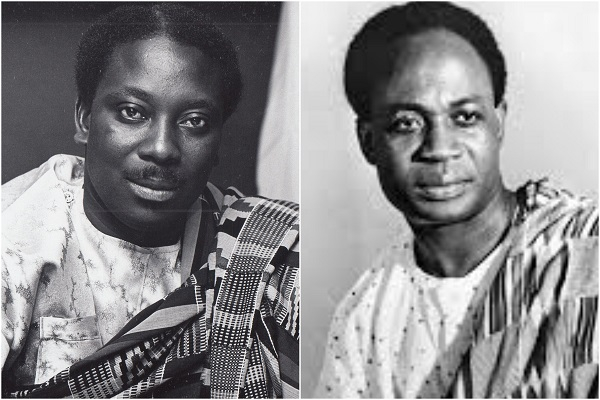Abuja Court Warns DSS, Pat Utomi Not To Undermine Suit On 'Shadow Government' Plot | Sahara Reporters
The DSS had filed a suit marked FHC/ABJ/CS/937/2025 against the renowned political economist over what the agency described as his attempt to launch a “shadow government” in Nigeria.
The Federal High Court in Abuja has issued a stern warning to both the Department of State Services (DSS) and Professor Pat Utomi, instructing them to refrain from taking any steps that could render a pending lawsuit ineffective.
Justice James Omotosho gave the caution on Wednesday after counsel for the DSS, Mr. Akinlolu Kehinde, SAN, raised concerns that the defendant, Utomi, was allegedly moving forward with plans despite the matter being before the court.
The DSS had filed a suit marked FHC/ABJ/CS/937/2025 against the renowned political economist over what the agency described as his attempt to launch a “shadow government” in Nigeria.
The DSS argued that the alleged move amounts to an attack on the Nigerian Constitution and could destabilise national order.
In its filings, the DSS also sought an interlocutory injunction to bar Utomi and his associates from organising rallies, protests, or granting media interviews related to the matter.
According to the DSS, intelligence reports suggest that Utomi had finalised plans to embark on public campaigns and road shows aimed at advancing the controversial initiative.
The News Agency of Nigeria reports that when the case was called on Wednesday, Utomi, who was present in court, was represented by Chief Mike Ozekhome, SAN.
Mr. Adedayo Adedeji, SAN, appearing on behalf of Mr. Joseph Daudu, SAN, also announced his appearance as amicus curiae.
An amicus curiae—Latin for “friend of the court”—is an individual or organisation not directly involved in a case but who provides expertise or insight to assist the court in reaching a well-informed decision. This contribution is often made through an amicus brief, which outlines relevant legal arguments or perspectives.
Justice James Omotosho informed the parties that, after reviewing the originating process filed by the Department of State Services (DSS) and the counter-affidavit submitted by Prof. Utomi, the court had decided to invite at least six distinguished legal experts—one from each of Nigeria’s six geopolitical zones—to offer guidance on the matter, given its national importance.
He added that the selection of experts was gender-balanced.
“And I have invited amicus curiae from each political zones to represent each zone because this issue has national interest, that is, national outlook as regarding the nature of the suit.
“I deemed it fit to invite vice chancellor of university, Senior Advocates of Nigeria (SAN), and professors of law of repute,” he said.
He stated that the contributions of the amici curiae (friends of the court) would be shared with all parties involved before the hearing and final judgment in the case.
The judge further announced the invitation of Prof. Ademola Popoola, a Professor of International Law and Jurisprudence at Obafemi Awolowo University (OAU), Ile-Ife; Prof. Uchefula Chukwumaeze, Vice Chancellor of Imo State University; and Mr. Joseph Daudu, SAN, to serve in this capacity.
Others are Mr Joe Gadzama, SAN; Prof. Dakas Dakas, SAN, former Dean, Faculty of Law, University of Jos in Plateau; Mrs Miannaya Essien, SAN, and Yakubu Maikyau, SAN, immediate-past President, Nigerian Bar Association (NBA).
However, DSS counsel Kehinde informed the court that a motion on notice for an interlocutory injunction was filed on June 4, seeking to restrain Utomi from organising any rally.
“I will like to get my lord’s directive in the motion of notice for interlocutory injunction that is ripe for hearing this morning,” he said.
In response, Ozekhome expressed appreciation to the judge for inviting amici curiae from all six geopolitical zones, especially for ensuring gender balance.
However, he objected to Kehinde’s application for the motion to be heard.
“We have to first know the face of this case before the interlocutory injunction which we have kicked against because it is asking for a relief in the main suit,” he said.
Justice Omotosho stated that the court would not entertain the interlocutory injunction to save time and instead ordered an accelerated hearing of the case.
He explained that the preliminary objection and the originating summons would be heard together, with the court addressing the preliminary objection first during judgment before proceeding to the substantive issues.
However, Kehinde maintained that he filed the motion because of Utomi’s alleged plan to take actions that could impact the case.
“My lord, I will ask for status quo to be maintained because certain steps are being taken by the defendant,” he said.
Justice Omotosho, therefore, cautioned the parties against taking any step that may affect the case.
“I think it is trite law that when a process is served on the other party, you do not take action that will make the suit to be nugatory.
“I think the defence counsel too knows this and any action taken will have consequences.
“I have made my intention known. No party should take any step that will make the suit nugatory. Any action taken will be nullified by this court.
“Upon receipt of the positions of amici curiae, we will serve you (the parties). Let us not take steps that will make the outcome nugatory,” the judge warned.
Justice Omotosho adjourned the case to July 10 for hearing.
In a preliminary objection filed through his counsel, Ozekhome, Utomi, a political economist and former presidential candidate of the African Democratic Congress (ADC) in 2007, urged the court to dismiss the suit for lack of jurisdiction.
Utomi advanced four grounds for the dismissal, arguing that the suit filed by the DSS failed to disclose any reasonable cause of action under the National Security Agencies Act, Cap N74, Laws of the Federation of Nigeria, 2004.
He contended that the subject of the suit—civic political engagement, shadow cabinet formation, and public policy discourse—does not fall within the statutory functions of the DSS as outlined in Section 2(3) of the Act.
He said, “The reliefs sought by the plaintiff/respondent seek to criminalise constitutionally protected rights to freedom of expression, association, and political participation contrary to Sections 39 and 40 of the 1999 Constitution (as amended).
“The suit amounts to an abuse of court process, is speculative, incompetent, inchoate and lacks any legal foundation.”
Utomi, therefore, urged the court to strike out or dismiss the suit on the stated grounds, citing lack of jurisdiction.
In an affidavit supporting his notice of preliminary objection, which he personally deposed to, Utomi argued that the suit was speculative, hypothetical, and premature, as it sought preemptive relief based solely on suspicion without any factual foundation.
He further contended that the DSS lacked the legal standing (locus standi) to initiate the action in the manner it did.












